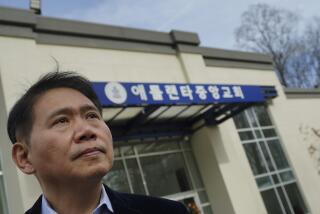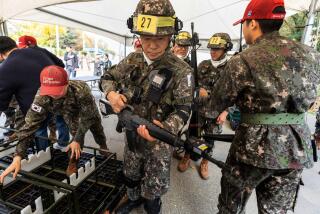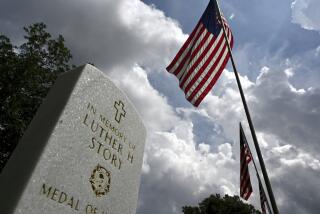24th Infantry in Korean War
- Share via
I am writing to express some disappointment about Broder’s article. As the author of a congressional House Resolution honoring the achievements of the majority black 24th Infantry, I was dismayed by the article’s negative overtones and perpetuation of biased accounts of their overall performance in the Korean War.
The article states the assertion of the 24th Infantry combat veterans that their regiment “fought no worse, in many instances fought better, than comparable white units.” More of the article should have been devoted toward examining this point instead of resurrecting the exaggerations, and in many cases falsehoods, which stigmatized the 24th Infantry.
Greater insight could have been provided about the 24th’s victory at the Korean town of Yechon; their holding of a most vital portion of the Pusan Perimeter against the main North Korean attack and other outstanding military action. We all know that in war not every military battle or engagement is distinguished by heroism. However, instances of dubious military action must be put into fair perspective. Incidents of poor performance were pervasive in the early stages of the Korean War. Poorly trained troops, inadequate supplies and equipment, and less than superior leadership contributed to some cases of unsatisfactory combat performance.
In the case of the 24th, these conditions were further exacerbated by the shame of segregation. Despite this, the 24th Infantry in many instances performed valiantly.
Those who served in, and alongside, the 24th Infantry Regiment are simply asking for fairness. They are requesting to be credited for their success, as well as their failures.
REP. AUGUSTUS F.
HAWKINS
D-Los Angeles
More to Read
Get the L.A. Times Politics newsletter
Deeply reported insights into legislation, politics and policy from Sacramento, Washington and beyond. In your inbox twice per week.
You may occasionally receive promotional content from the Los Angeles Times.










